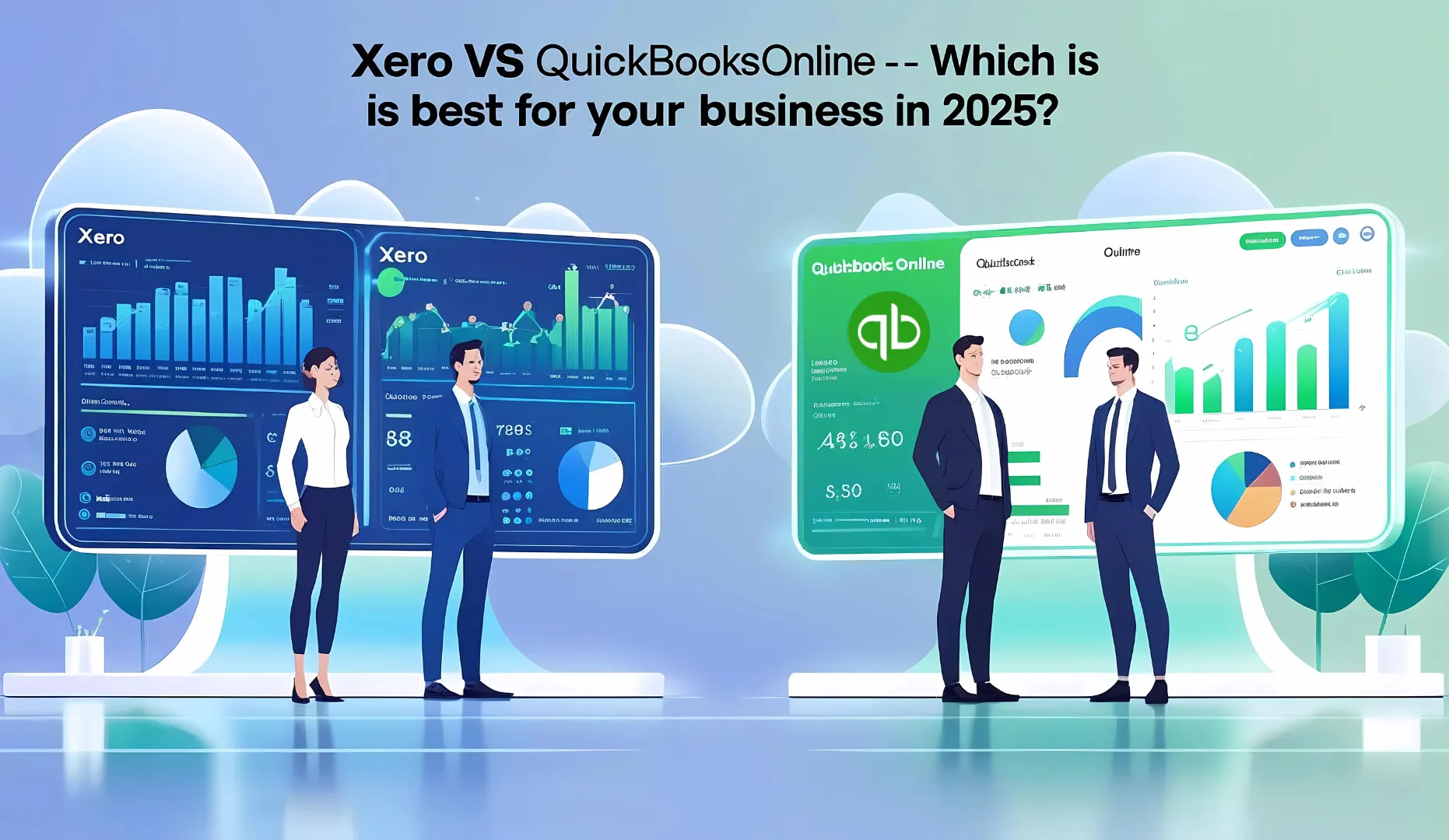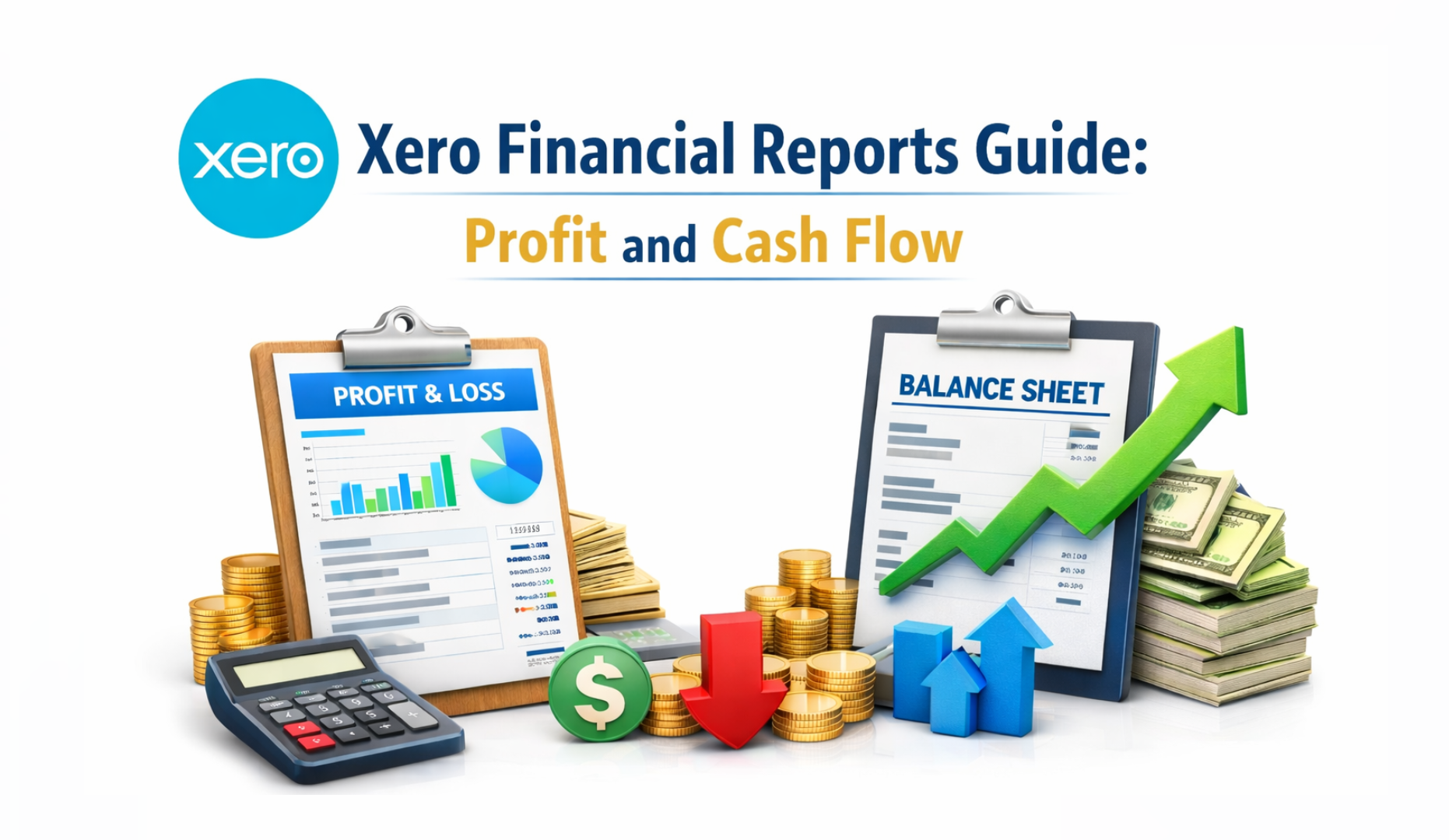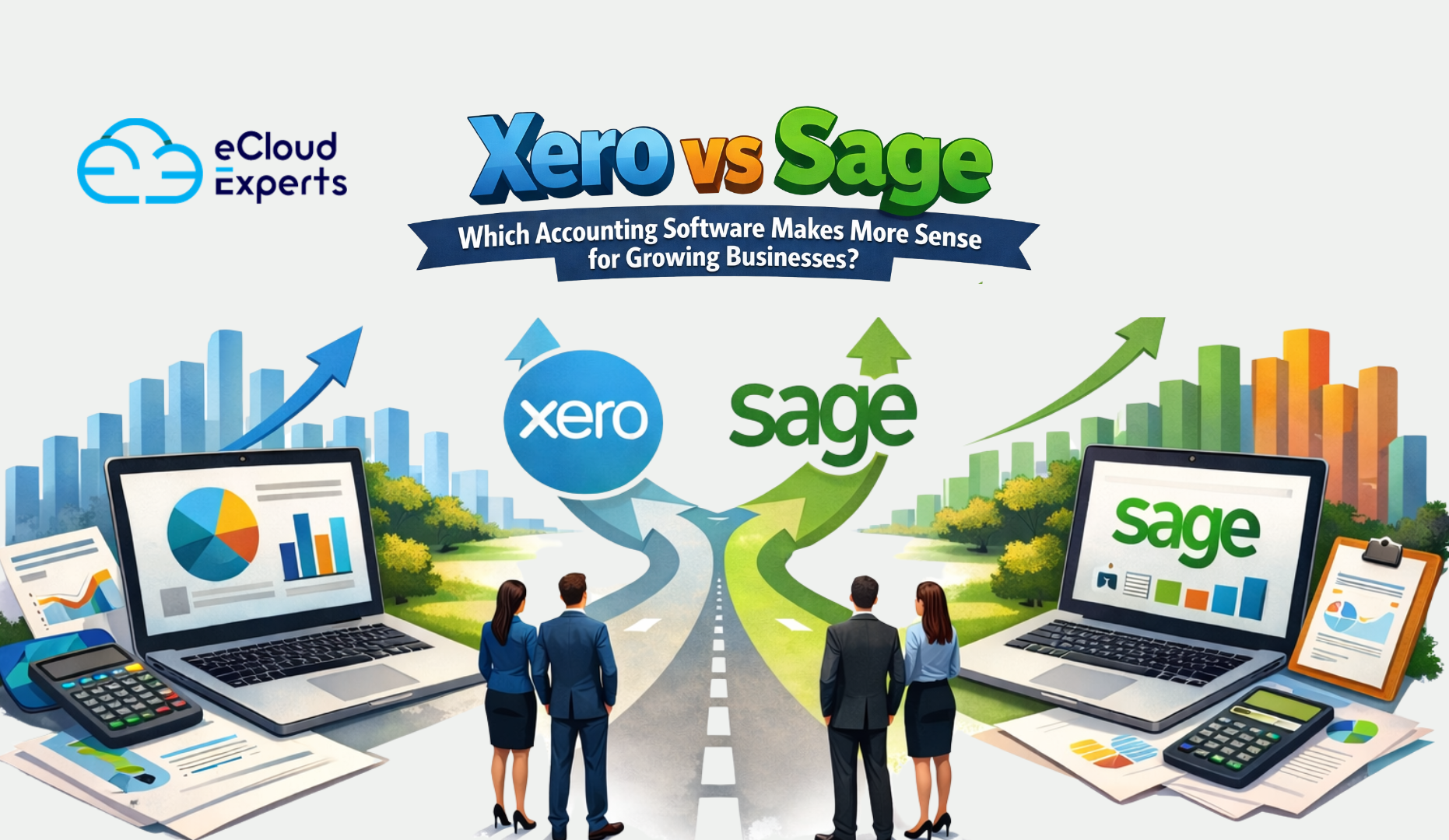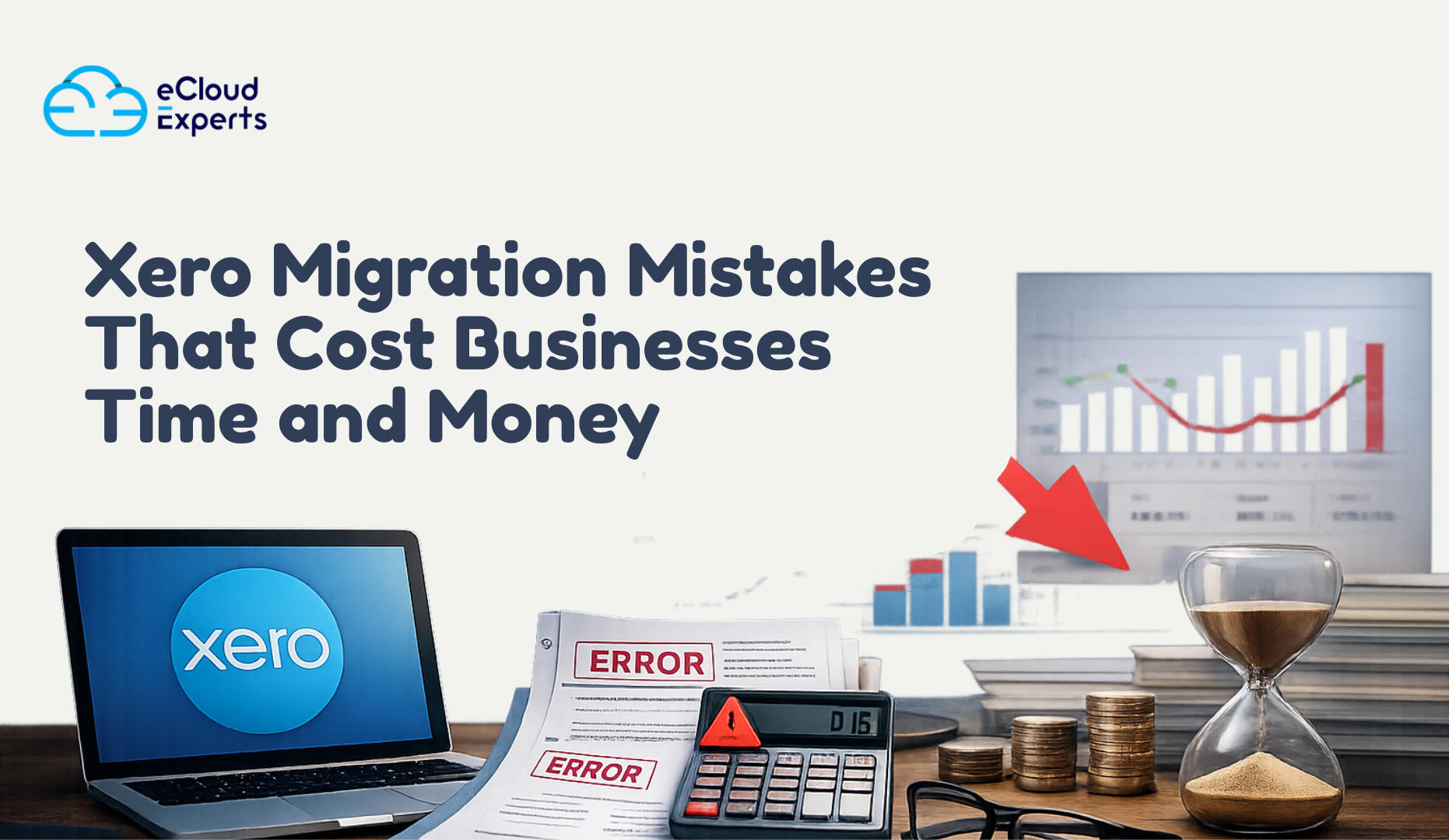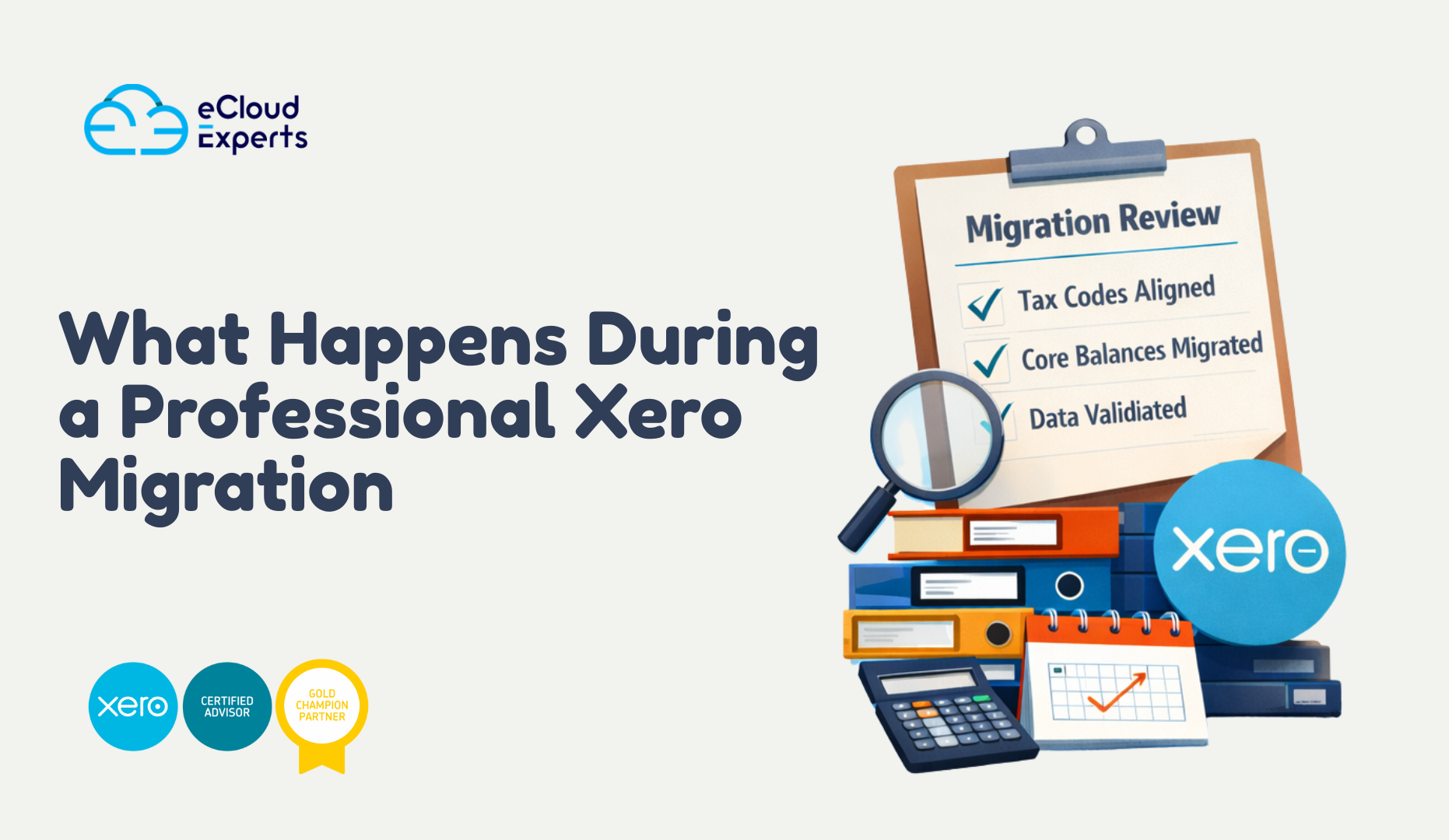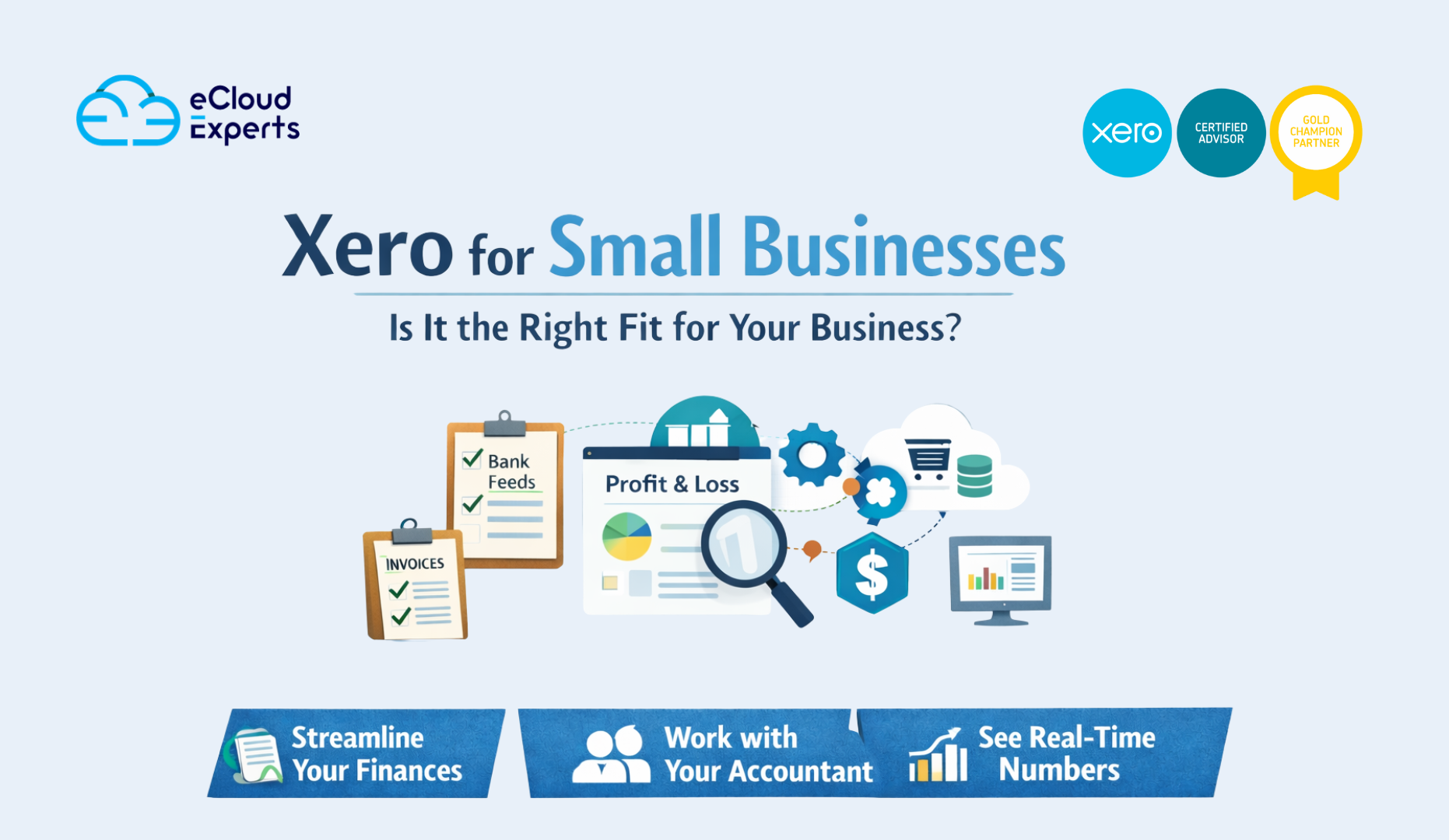In today’s fast-paced, cloud-driven world, choosing the right accounting software can either streamline your business operations or create a bottleneck. Two of the most widely used cloud accounting platforms are Xero and QuickBooks Online (QBO) both powerful, feature-rich tools designed for small to medium-sized businesses.
But when it comes to Xero vs QuickBooks Online, which one should you choose for your business in 2025?
This in-depth comparison will guide you through the features, pricing, ease of use, integrations, support, pros and cons, and more so you can confidently make the right decision for your business.
High-Level Overview: Xero and QuickBooks Online
What is Xero?
Xero is a New Zealand-based cloud accounting software designed for small to mid-sized businesses. It provides real-time financial data, intuitive dashboards, and an easy-to-navigate interface with powerful features like bank reconciliation, invoicing, expense management, and payroll (in select regions).
What is QuickBooks Online?
QuickBooks Online (QBO) is Intuit’s cloud-based version of its desktop accounting software. Built for businesses of all sizes, QBO offers robust accounting features, automation, and deep integration with Intuit’s broader ecosystem—especially in North America.
Quick Snapshot: Xero vs QuickBooks Online
| Feature | Xero | QuickBooks Online |
| Ease of Use | Intuitive, clean UI | User-friendly, more features on dashboard |
| Payroll | Integrated in some countries | Integrated for US, third-party for others |
| Bank Reconciliation | Excellent, fast learning curve | Excellent with automation |
| Reporting | Customizable, visual | More pre-built templates |
| Multi-Currency Support | Yes (from Standard plan) | Yes (only on Plus or Advanced) |
| Pricing | Flat-tiered | Tiered, slightly more expensive |
| Mobile App | Powerful and user-friendly | Highly functional, slightly better UX |
| Best For | Global businesses, accountants, startups | US-based businesses, freelancers, larger SMEs |
1. Core Features Comparison
Invoicing
- Xero: Create branded invoices, recurring billing, and accept online payments via Stripe, PayPal, etc. Smart invoice reminders help reduce overdue payments.
- QBO: Customizable templates, batch invoicing, and automated reminders. More robust automation than Xero.
Verdict: QuickBooks Online offers slightly better automation for invoicing, but Xero’s layout is cleaner and faster for quick edits.
Bank Feeds and Reconciliation
- Xero: Live bank feeds, automatic matching, and AI-assisted reconciliation make this feature seamless.
- QBO: Excellent bank connectivity and reconciliation, with automation to match transactions to vendors and receipts.
Verdict: Both are industry leaders in bank reconciliation, but Xero gets a slight edge for speed and simplicity.
Reporting and Dashboards
- Xero: Real-time dashboards, customizable reports, and an option to use tracking categories for granular analysis.
- QBO: Dozens of pre-built reports with drill-down functionality. Advanced reporting only available on higher-tier plans.
Verdict: QuickBooks Online offers better out-of-the-box reports, while Xero shines with customization and simplicity.
Multi-Currency Support
- Xero: Available from the Standard plan upwards. Automatically converts currencies using daily exchange rates.
- QBO: Available only on Plus and Advanced plans.
Verdict: Xero makes multi-currency more accessible and affordable, ideal for international businesses.
2. Ease of Use & User Interface
Both platforms offer modern, cloud-based experiences, but with different styles.
- Xero: Clean, minimal, and intuitive. Less cluttered, especially appealing to users new to accounting.
- QBO: Feature-rich with a more complex dashboard. Experienced users may appreciate the detail.
Verdict: Xero wins for beginners and accountants who prefer clarity, while QBO is preferred by users who need depth.
3. Pricing and Plans (as of 2025)
Xero Pricing (UK/AU-based model, varies by region):
- Starter: £15/month – Limited invoices and bills
- Standard: £30/month – Unlimited invoicing, bills, bank reconciliation
- Premium: £42/month – Adds multi-currency
QuickBooks Online Pricing (US-based model):
- Simple Start: $30/month – Basic features, 1 user
- Essentials: $60/month – Adds bill management, 3 users
- Plus: $90/month – Project tracking, 5 users
- Advanced: $200/month – Custom workflows, analytics
Verdict: Xero provides better value at each pricing tier, especially for international businesses.
4. Integrations and Ecosystem
- Xero: Integrates with 1000+ apps in the Xero App Store, including Shopify, Hubdoc, Gusto, and Stripe.
- QBO: Strong integrations with the Intuit ecosystem and 750+ third-party apps. Deep connections with payroll, payments, and TurboTax.
Verdict: Xero has a more open integration ecosystem, but QBO’s connections are better for US-based businesses.
5. Customer Support and Resources
- Xero: 24/7 email support, comprehensive knowledge base, and active community forums. No direct phone support.
- QBO: Live chat, phone support, in-product help, and extensive video tutorials.
Verdict: QuickBooks Online provides better hands-on support, but Xero’s self-service model is effective for tech-savvy users.
6. Regional Suitability
| Region | Best Option |
| United States | QuickBooks Online (US-centric features) |
| United Kingdom | Xero (popular among accountants) |
| Australia/NZ | Xero (local support, compliance) |
| Global | Xero (multi-currency, global reach) |
7. Learning Curve and User Roles
- Xero: Designed for business owners and accountants. Easy onboarding and training materials.
- QBO: Built for business owners, bookkeepers, and financial advisors. Interface complexity increases with higher plans.
Verdict: Xero is easier to learn, but QBO is more powerful once mastered.
8. Pros and Cons
| Pros of Xero: Clean, modern interface Unlimited users on all plans Better multi-currency support Open global integration network Easy bank reconciliation | Cons of Xero: No built-in phone support Payroll limited outside UK, AU Starter plan is too limited |
| Pros of QuickBooks Online: Built-in payroll for US users Unlimited users on all plans Robust reporting and automation Open global integration network In-product support and phone assistance Intuit ecosystem is seamless | Cons of QuickBooks Online: Higher cost at scale User limits per plan Feature overload for beginners |
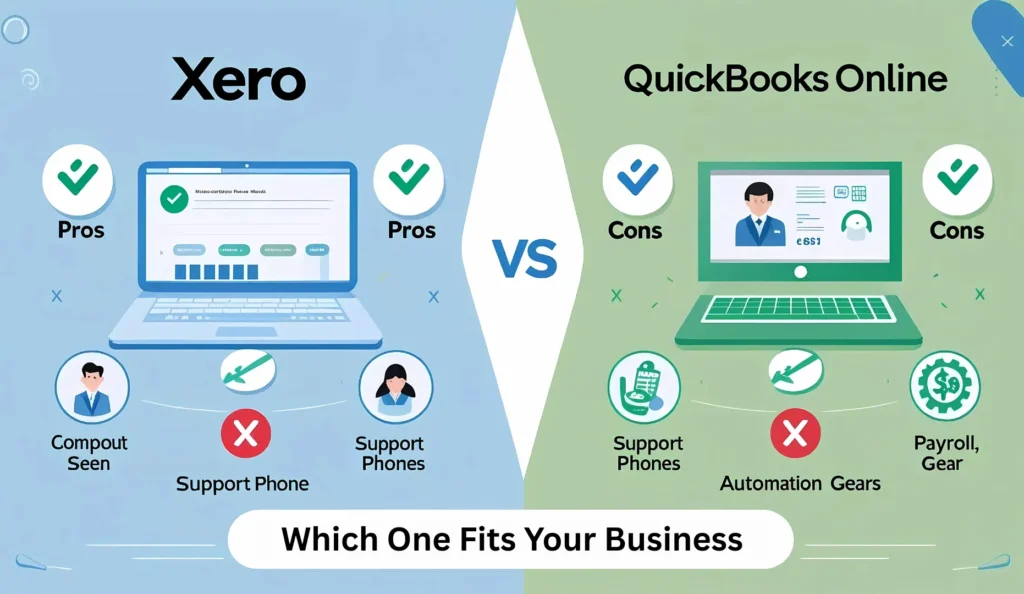
9. Xero or QuickBooks Online for Small Business?
Choose Xero if:
- You run an international or multi-currency business
- You want clean UI and an easier learning curv
- You’re an accountant or work closely with one
- You need more users at no extra cost
- You want flexibility with integrations
Choose QuickBooks Online if:
- You’re a US-based business
- You need advanced reporting and analytics
- You use Intuit payroll or TurboTax
- You want extensive customer support
- You manage a large volume of transactions or projects
Final Verdict: Xero vs QuickBooks Online – Which is Best in 2025?
There’s no one-size-fits-all winner Xero and QuickBooks Online are both leading accounting software solutions in 2025.
If you’re a startup, global company, or need ease of use, Xero may be your best bet. If you’re a US-based company looking for robust features and support, QuickBooks Online might be the right choice.
At the end of the day, the best accounting software is the one that fits your workflow, region, team, and growth plans.
Need Help Choosing or Migrating?
At eCloud Experts, we specialize in Xero setup, QuickBooks migrations, and accounting system health checks. Whether you’re switching from Excel, Sage, or QuickBooks Desktop, our certified advisors will guide you through a smooth transition.
Book a free discovery call with our expert advisors today.

